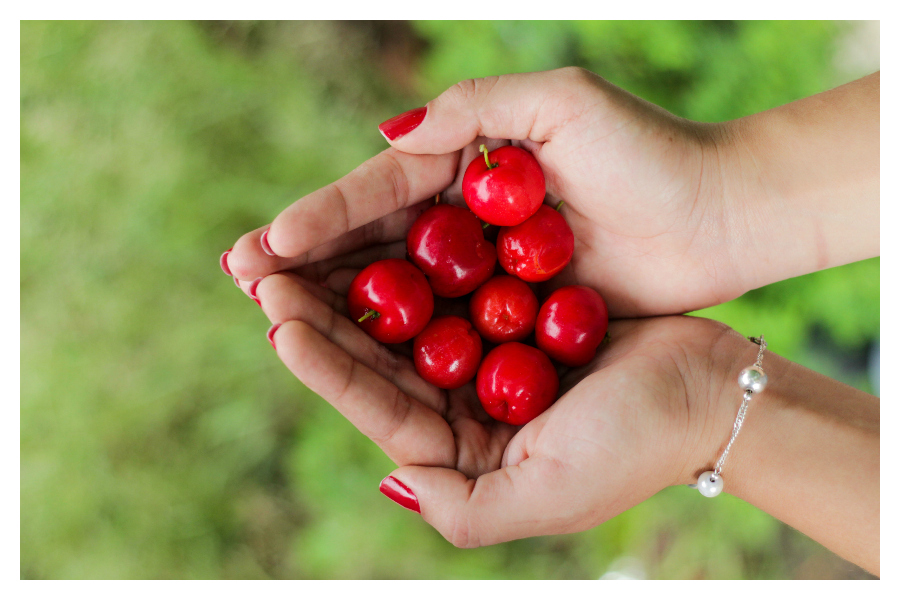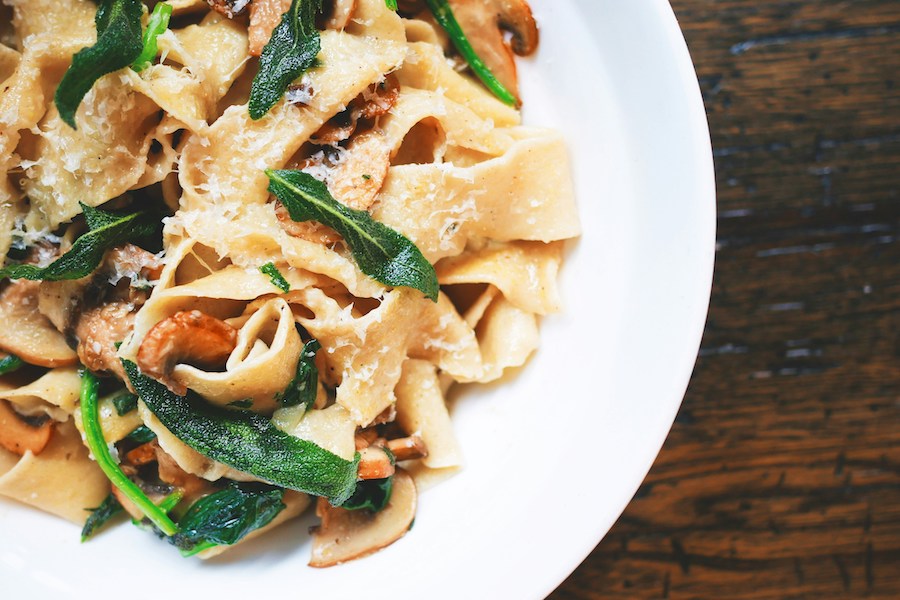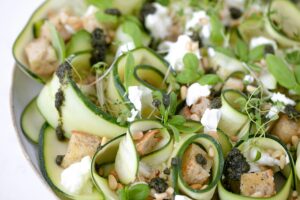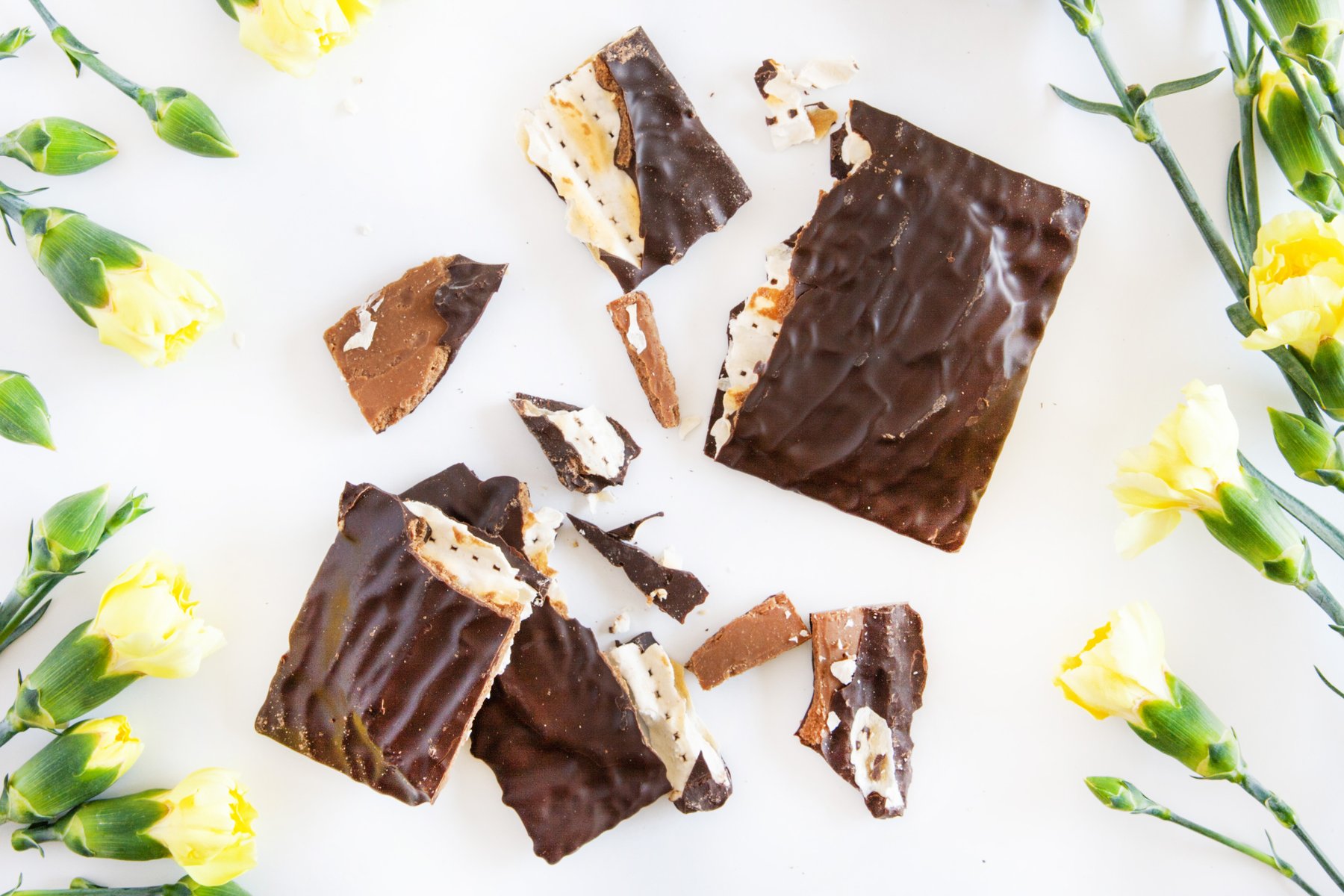With a new baby on the way, I can expect to be sleep deprived for oh, the next 18 years, give or take. So while I wait, I’ve rounded up eight power foods to keep the melatonin rolling and my body relaxed, so that I can stock up on shuteye now and be totally energized later.
Because that’s how it works, right?
If you have a sleepless kid, too, or are just having trouble unplugging from the news, try adding these foods that help sleep to your diet. Sweet dreams, everybody.
Related: Skip the sniffles with these 9 immune-boosting super foods.

Cherry Turmeric Bedtime Tea | Love & Zest
Cherries
Cherries are naturally high in melatonin, especially if you opt for the tart variety. Eat them fresh, dried, juiced, or in this perfect sounding Cherry Turmeric Bedtime Tea at Love & Zest, and you’ll be drifting off in no time.
Bananas
Those of us with restless leg syndrome know that the struggle to be still and fall asleep is real. Luckily, my favorite cereal topping happens to be blessed with an abundance of potassium and magnesium, which help calm wiggly legs and prevent those annoying calf cramps. Plus, they have a healthy supply of B6, which helps your body create melatonin. Insomnia triple threat!
Fish
You know that warm sleepy glow you get right after scooting back from the Thanksgiving table? It’s caused by a chemical in turkey known as tryptophan. And while you can always get it from the festive bird, there’s an even bigger supply in fish. Try adding tuna or shrimp to your weekly dinner rotation and see if you sleep better after a #SundaySeafood meal. (See what I did there? I think I’m on to something.)
Related: Guide to healthy grains: 5 lesser-known, kid-friendly options beyond quinoa and rice.
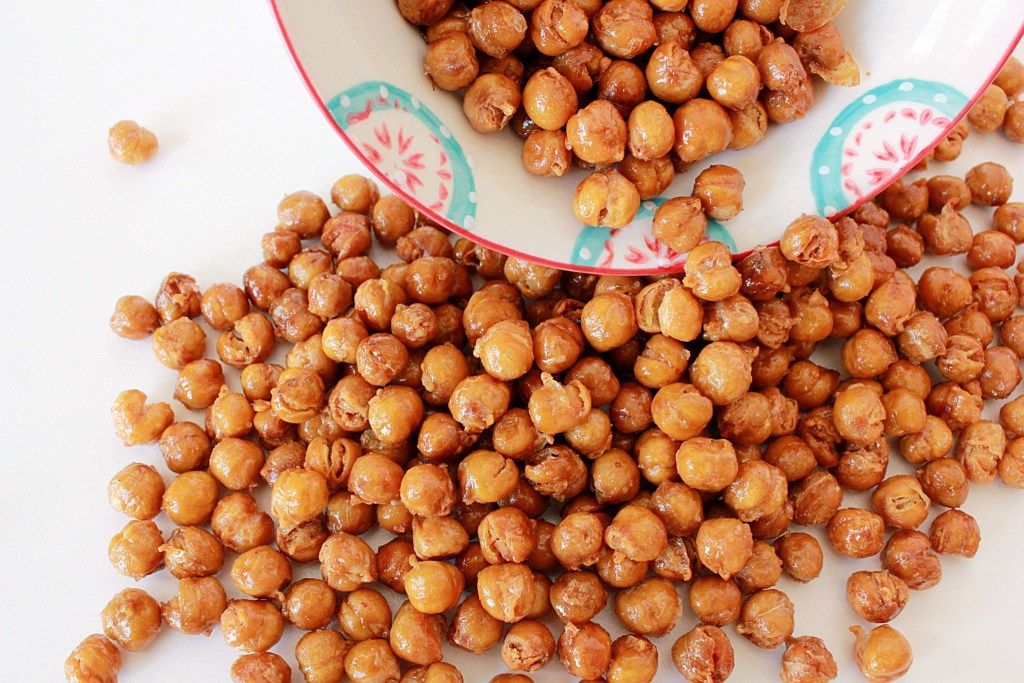
Maple Roasted Chickpeas | Crave the Good
Chickpeas
If you have kids who turn up their noses at salmon and tuna, or you’re trying to stick to more vegetarian fare, chickpeas are a great alternative source of tryptophan. Plus, they’re packed with protein and fiber and make one of the easiest snacks ever if you roast them, like in this recipe for Maple Roasted Chickpeas at Crave the Good, or serve them in hummus form with a big bowl of veggies.
Chamomile
Chamomile’s been used for its soothing and soporific properties for centuries, so it’s always a good idea to have a box of this tea on hand. And this tasty flower is naturally calming, so it’s great for anytime you’re feeling a little (or a lot) stressed out — even in the middle of the day.
Dairy
Consuming foods with high levels of calcium also helps your body make melatonin, which is why people with calcium deficiencies struggle to fall asleep naturally. Mom was right about this one: Having that warm glass of milk before bed can be a good thing. Though, keep in mind, that the specific timing is less important than eating dairy (or other sources of calcium, like leafy greens) regularly to make sure your levels are where they need to be.
Related: 7 healthy, unexpected twists on traditional hot cereal recipes to warm your mornings.
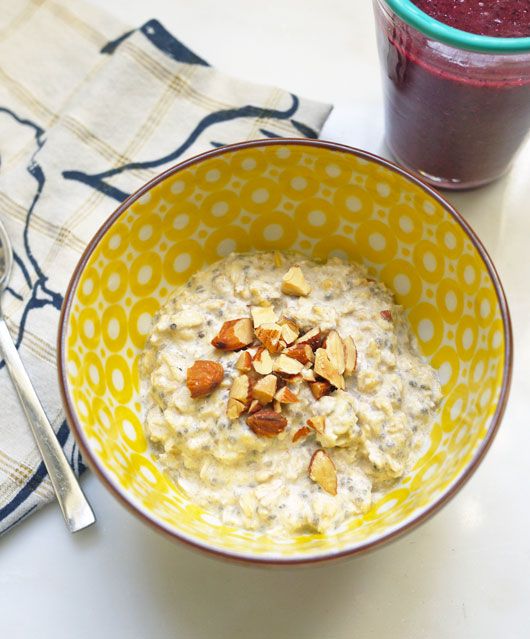
How to make instant oatmeal as nutritious as the slow cooked kind | Cool Mom Eats
Cereal
Brinner lovers, rejoice! It turns out that eating breakfast at dinnertime — or right before bed — really is good for you. As long as you stick to cereals with complex carbs, like oatmeal, which produce tryptophan, and avoid blood sugar-spiking cereals (looking at you, Reese’s Puffs) that can cause a crash later in the night, which might actually cause you to wake up mid sleep cycle.
Nuts
Almonds are high in magnesium, and walnuts boast an abundance of tryptophan, so either makes a good sleep-supporting snack. And foods high in healthy fats tend to help your body make serotonin, which also helps regulate mood and sleep.

